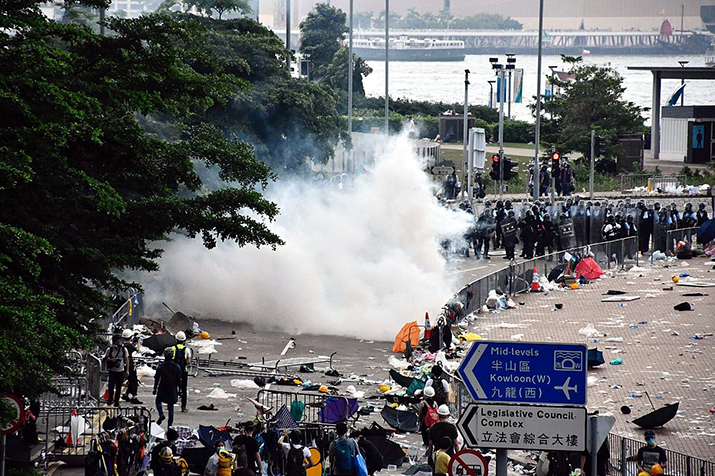Most people know Hong Kong as an international financial hub, a tourist destination, and a shopping mecca. However, many are unaware of the civil unrest which roots itself deeply in British colonization. Hong Kong, initially a small fishing region of southern China, became a British colony in 1841, a state which lasted until 1997. As Hong Kong was liberated, the British government signed a treaty with the Chinese government known as the Sino-British Joint Declaration (SBJD), which declared Hong Kong a semi-autonomous region of China until 2047. The SBJD ensured that Hong Kong remained a democratic nation and operated under capitalism as well as the culture that developed throughout British colonization.

Unfortunately, the political understanding between China and Hong Kong has always been and is becoming increasingly complex. While the Chinese government had agreed upon the “one country, two systems” principle at the time of the SBJD, there were several occasions thereafter in which the Chinese government failed to honor the agreement and interfered in Hong Kong’s internal affairs. Such circumstances gave rise to identity crises and resistance to the Chinese government in Hong Kong, leading to movements such as the 2014 Umbrella Revolution and the recent protests. For a closer examination on the social unrest in Hong Kong I interviewed a Hong Kong resident who is a student at The Kellett School.

According to a classmate from Hong Kong, many residents, including himself, are not happy with the current situation. The “one country, two systems” is not being properly executed at the moment; the interference of the Chinese government deprives them of the rights protected under a democratic system. He worries that Hong Kong might eventually submit itself to China. He also said that “the Chinese government views Hong Kong as a separatist and considers Hong Kong as a serious diplomatic and economic loss”. Finally, he pointed out how China’s aggressive stance in controlling Hong Kong is unjustifiable, especially given that the SBDJ is still valid.
Another important factor in understanding the conflicts between China and Hong Kong is the difference in culture and path in modern history. While they are physically close, China and Hong Kong have experienced a completely different history in their transition into modern societies. Under the influence of the British government, Hong Kong has operated with democracy and capitalism for over a century, while China developed into a modern society under socialism, thus making it difficult to reach an understanding of one another.
It may seem that Hong Kong is suffering greatly from the Chinese government. Yet, it is important to note that Hong Kong does benefit from China economically. The economic interdependence of the two governments is entrenched deeply within the different systems. Hong Kong’s separate judiciary from China allows businesses to be operated and expanded with more liberties. Hence, companies worldwide use Hong Kong as a starting point to expand their businesses into mainland China. For the Chinese government, they can attract foreign funds into Hong Kong, where financial and legal systems are more enticing than mainland China. This interdependence allows both countries to economically benefit from each other.
Historically, Hong Kong can be viewed as China’s “little brother”. They have shared history from before the colonization by Great Britain and complement each other economically today. However, the fact that both regions have experienced a completely different transition to modern society must not be overlooked. The differences in culture and history between modern China and Hong Kong are clear, from which both countries can benefit.
As the year 2047, in which the SBDJ expires, fast approaches, Hong Kong may no longer be a part of China. I hope Hong Kong and China reach a consensus so that the relationship between the brother-like regions returns to a healthy coexistence.

Myungjae Han
Year 10 (Grade 9)
The Kellet School

